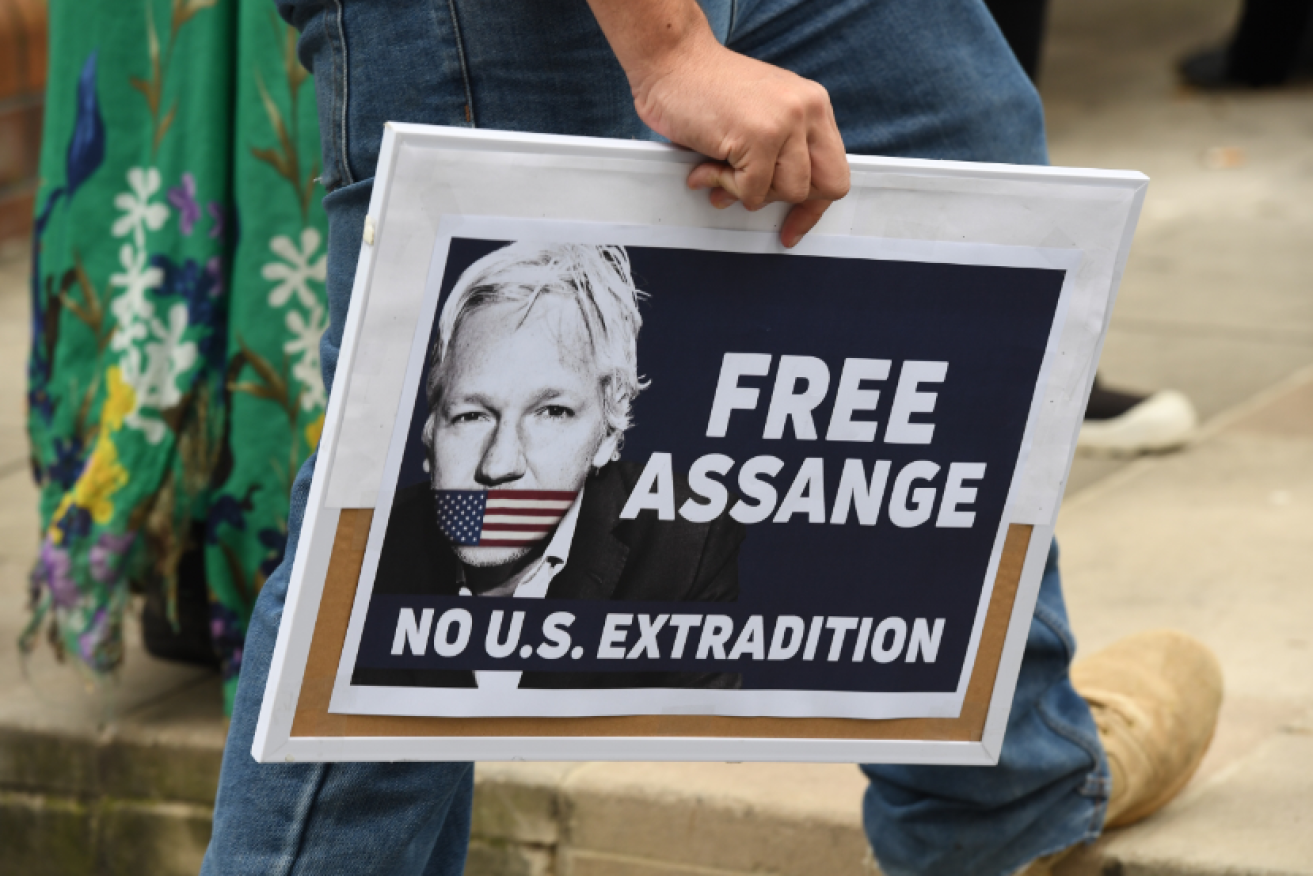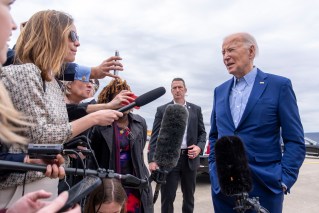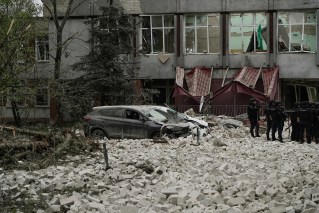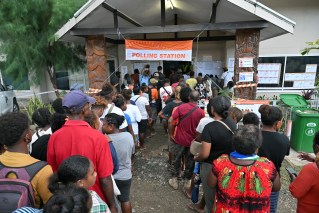Julian Assange spends his first night behind bars as protests erupt across the world


A protester and his sign head to a pro-Assange rally in Sydney. Photo: Peter Rae/AAP
In a London courtroom, in Australia, Ecuador and the Oval Office, the reactions and repercussions after Julian Assange’s arrest are rippling around the world.
Meanwhile, as the man at the centre of all sits in a jail cell, his lawyers are fighting a desperate battle to stop him being extradited to the US, where he could spend the rest of his life behind bars.
In what Assange supporters are branding part a global witch hunt, a Swedish software developer and reputed associate of the WikiLeaks founder was arrested as he was about to fly out of the Ecuadorian city of Quito for Japan.
Associated Press, quoting an unnamed Ecuardorian official, said the arrest of Swedish programmer Ola Bini was prompted by an alleged blackmail ring that had threatened President Lenin Moreno for ending Assange’s embassy sanctuary and revoking his citizenship.

Assange supporters unfurl their banner outside the Opera House for just a few seconds before security moves them on. Photo: AAP: Danielle Wood
In Australia, as Assange’s supporters unfurled banners on the Opera House steps, his mother blasted Ecuador’s President Lenin Moreno, who was also being condemned by protesters in his South American homeland.
“May the face of my suffering son haunt your sleepless nights,” Christine Assange tweeted.
“May your soul writhe forever in torturous Purgatory as you have tortured my beloved son!”
https://twitter.com/AssangeMrs/status/1116589511679459328
Mrs Assange was only getting warmed up, also attacking Judge Michael Snow, who ordered Assange be held without bail until his next court appearance, via video link, on May 2 to face the extradition case.
The ripples from the arrest also washed over the White House, where President Donald Trump experienced a sudden loss of memory when asked what he thought about Assange and his arrest.
“WikiLeaks, I love WikiLeaks,” Mr Trump had said shortly before his November 2016 election victory, having favourably mentioned the whistleblowers’ clearing house a total of 141 times on the campaign trail.
“This WikiLeaks is like a treasure trove,” he commented just a week before America voted, hailing the massive release of internal Democratic Party documents which exposed how Hillary Clinton’s campaign had white-anted arch-rival Bernie Sanders during the primaries.
“Boy, I love reading those WikiLeaks”, Mr Trump said then.
But not now, when Mr Trump responded to a question while hosting South Korean President Moon Jae-in at the White House.
“I know nothing about WikiLeaks,” he insisted.
On Friday morning (AEST), Assange’s lawyer Jennifer Robinson confirmed her client would be fighting extradition, saying it set a “dangerous precedent” if journalists could face US charges for “publishing truthful information about the United States”.

As he was preparing to spend his first night behind bars, supporters quickly gathered outside Westminster Magistrates Court. Photo: Getty
Ms Robinson visited Assange in the cells at central London police station, where he thanked supporters and said: “I told you so”, having for many years predicted he would be extradited to the US if he left the embassy.
In dramatic scenes on Thursday night (AEST), Assange was forcibly removed by London police after having his political asylum revoked after seven years holed up inside the embassy.
Looking vastly different from when he entered the secured building, a frail and bearded Assange resisted as he was dragged down several steps by officers and bundled into a police van, yelling “This is unlawful, I’m not leaving”.
He was driven to the Westminster Magistrates Court where he pleaded not guilty of failing to surrender in 2012 when facing extradition to Sweden to face questioning in a sexual assault case.
His defence team was late to the hearing, so Assange pulled out a book by Gore Vidal and read a few pages while prosecutor Erin Watkin left the room to fetch them.
His lawyer, Liam Walker, argued Assange had reasonable grounds to not adhere to his bail conditions as he believed he would not be treated fairly by British courts and would be extradited.
Mr Walker said Assange’s belief was “now beyond reasonable doubt” before giving the example of what he said was a self-evident conflict of interest in his earlier case before Senior District Court judge Emma Arbuthnot, whose husband Tory Lord Arbuthnot had been targeted by WikiLeaks.
“He relies upon previous hearings, and what I submit on his behalf were compromised hearings that illustrate the unfairness he was subjected to,” Mr Walker told the court.
District Judge Michael Snow was incensed by the defence case, chiding Assange as “shameful” for making an “assertion about a fellow senior judge”.
“His assertion that he has not had a fair hearing is laughable and, I’m afraid, the behaviour of a narcissist who cannot see beyond his own self interest,” he said.
American prosecutors revealed Assange was now facing extradition to the US for conspiring in 2010 with former Army intelligence analyst Chelsea Manning to break into a secure Department of Defence computer.
Hours after he was dragged out of the embassy, US officials announced he had been charged with a single count of conspiracy to commit computer intrusion.
Australian-born Assange faces up to five years in a US prison if convicted on the charges.
But observers believe that is the least of his worries, as he could also be charged with espionage offences carrying penalties that, if found guilty, would amount to a life sentence.
Longtime friend and visitor to the embassy, former Baywatch star Pamela Anderson, took to Twitter on Friday morning saying Assange looked “very bad”.
“I am in shock … I couldn’t hear clearly what he said? He looks very bad.
How could you, Equador ? (Because he exposed you). How could you UK. ?,” she wrote.
Don't extradite Assange! Sign the petition https://t.co/lwVHrfXmkC #diem25 #justice4J
— Pamela Anderson (@pamelaanderson) April 11, 2019
She later posted a “Don’t Extradite Assange” petititon which had gathered almost 38,000 signatures by Friday afternoon.
British Prime Minister Theresa May hailed the news in parliament, to cheers and cries of “Hear, hear!” from lawmakers.
Foreign Minister Marise Payne said Assange would continue to receive “the usual consular support” and that consular officers would try to visit him.
Meanwhile, Prime Minister Scott Morrison said the US push to extradite Assange had nothing to do with Australia.
“When Australians travel overseas and find themselves in difficulty with the law, they face the judicial systems of those countries,” Mr Morrison told ABC television on Friday.
On Friday morning he told reporters he knew nothing about the organisation.
WikiLeaks claimed “powerful actors, including the CIA, are engaged in a sophisticated effort to dehumanise, delegitimise and imprison [Assange]”.
Former CIA intelligence agent turned whistleblower Edward Snowden was among high-profile supporters, also sharing a link to the indictment.
Mr Assange took refuge in Ecuador’s embassy in 2012 after British courts ordered his extradition.
Assange’s falling out with Ecuador
Assange’s relationship with his hosts collapsed after Ecuador accused him of leaking information about President Moreno’s personal life – apparently the same accusation that led to the Swedish computer engineer’s arrest at Quito airport.
Mr Moreno said he had asked Britain to guarantee that Assange would not be extradited to a country where he could face torture or the death penalty.
“The discourteous and aggressive behaviour of Mr Julian Assange” as well as “hostile and threatening declarations” by an unnamed organisation against Ecuador made the asylum of Assange “unsustainable and no longer valid,” Mr Moreno said in a video message on Twitter.
Mr Moreno said Assange repeatedly violated the conventions of diplomatic asylum: “He particularly violated the norm of not intervening in the internal affairs of other states.”
Assange’s arrest came less than 24 hours after WikiLeaks held a media conference alleging that Ecuador spied on his legal and medical visits, stole legal notes during a court hearing, secretly co-operated with the United States and tried to extort 3 million Euros ($4.7 million) from him.
Less than a week ago, Assange was warned by a high-level source that he would be expelled within “hours to days”.
Assange’s relations with his embassy hosts deteriorated in the past year. Last year, Ecuador cut off his internet and issued a nine-page memo demanding he steer clear of sensitive topics and concentrate on the “wellbeing, food, hygiene and proper care” of his cat.








